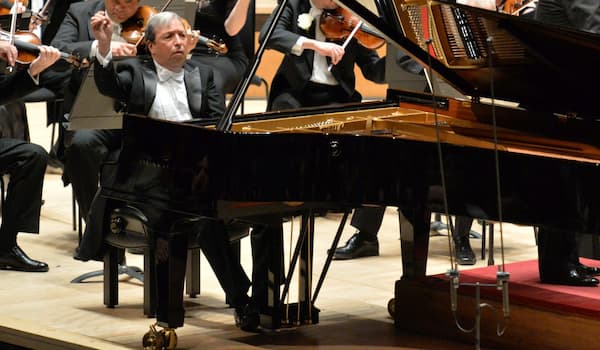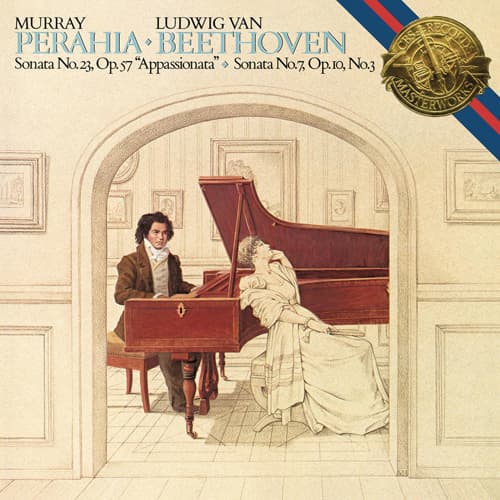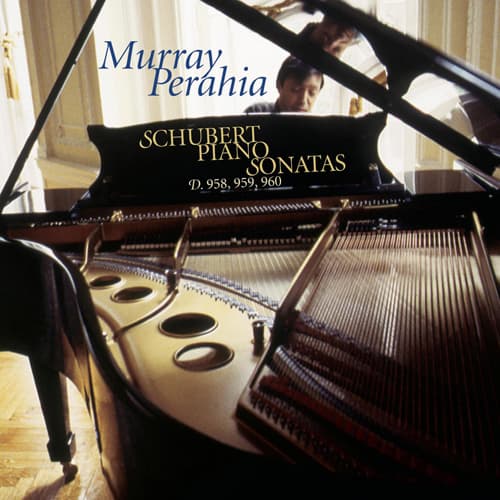Murray Perahia, born on 19 April 1947 in New York City, is one of the most revered pianists of our time. A musician whose mastery transcends technical brilliance to touch the profound depths of musical expression, Perahia’s artistry is defined by flawless technique and the extraordinary ability to illuminate the emotional and intellectual core of the music.

Murray Perahia
He triumphed at the 1972 Leeds International Piano Competition, and has since built a legacy of interpretations that are celebrated for their clarity, sensitivity, and a rare balance of restraint and intensity.
His vast discography spans the classical canon and multiple Grammys, and his deep connection to the music and his unwavering commitment to the composer’s intent distinguish him as a pianist of unparalleled depth and grace. On the occasion of his birthday, let us sample some of his most iconic recordings and performances.
Murray Perahia Plays Bach: Partita No. 6 in E minor, BWV 830
Beethoven Sonatas

Murray Perahia has recorded a select number of Beethoven’s piano sonatas, showcasing his interpretive depth, technical precision, and lyrical sensitivity. Although he has not recorded the complete cycle, his contributions are highly regarded among Beethoven enthusiasts and critics. His Beethoven recordings span his long career, and are primarily recorded with Sony Classical and Deutsche Grammophon.
Perahia’s Beethoven is frequently described as lyrical yet disciplined, avoiding extremes of tempo or sentimentality. Influenced by his study of historical performance practices and Beethoven’s manuscripts, Perahia brings out the music’s inner voices and structural logic. His flawless technique allows for crystalline articulation, and over time, there is a shift toward greater emotional depth and a slightly freer approach to phrasing.
Ludwig van Beethoven: Piano Sonata No. 23 in F minor, Op. 57 “Appassionata” (Murray Perahia, piano)
Mozart Piano Concertos

Between 1975 and 1988, Murray Perahia recorded all 27 Mozart piano concertos, performing as both soloist and conductor with the English Chamber Orchestra. These recordings are considered among the finest interpretations of these works, blending his exceptional pianistic skill with a profound affinity for Mozart’s style.
His Mozart is characterised by clarity, elegance, and a singing tone while avoiding excessive romanticism. He draws out the music’s operatic qualities, including dramatic contrasts, while maintaining classical proportions. Conducting from the keyboard, Perahia’s dual role allowed for a unified vision and an approach that mirrors Mozart’s own practice. This Mozart cycle remains a cornerstone of his discography, capturing a golden era of his career.
Wolfgang Amadeus Mozart: Piano Concerto No. 27, K. 595 (Murray Perahia, piano; English Chamber Orchestra; Murray Perahia, cond.)
Chopin Ballades
Murray Perahia’s recordings and performances of Chopin’s Four Ballades are widely regarded as some of the most distinguished interpretations of these works. Reflecting his poetic sensibility, technical mastery, and deep musical insight, critics assert the “Chopin playing does not come better than this, and the set of Ballades is unlikely to be surpassed.”
In his performance of “Ballade No. 4,” the most complex and technically demanding piece, Perahia introduces a reading that is both intellectually rigorous and emotionally compelling. He certainly navigates the intricate counterpoint and explosive coda with a firm grasp of the work’s architecture. The complete set captures Perahia’s affinity for Chopin’s poeticism, blending technical precision with a deeply felt sensitivity that elevates these works to new heights.
Murray Perahia Performs Chopin: Ballade No. 4
Schubert Piano Sonatas

Murray Perahia’s late-career exploration of Schubert’s final sonatas is a testament to his maturity as an artist, offering profound and introspective readings of these expansive and emotionally rich pieces. Perahia emphasises the mediative qualities throughout, treating them as intimate confessions rather than virtuosic showpieces.
With his trademark singing tone shining through, Perahia brings a classical sensibility to these works while maintaining coherence across long movements. Perahia never sacrifices emotional depth, as he uses subtle dynamic shadings to produce a natural ebb and flow. He allows the harmonic shifts and thematic development to breathe, offering a wonderful blend of technical mastery and emotional resonance.
Franz Schubert: Piano Sonata No. 21, D. 960 (Murray Perahia, piano)
Schumann
Murray Perahia’s performances and recordings of Schumann’s piano works are a vital part of his discography, reflecting his deep connection to the composer’s introspective lyricism and structural complexity. His discography spans the concerto and solo works, and he has performed them in live performances across the world.
Focusing on clarity and emotional truth, Perahia avoids extremes and blends Schumann’s passion with a classical sense of form. A critic writes, “his prismatic tone colours and singing legato bring out Schumann’s melodic richness.” His Schumann performances are cherished for their elegance, depth, and fidelity to the composer’s spirit.
Murray Perahia’s legacy as a pianist and interpreter is one of enduring excellence. He has left an indelible mark on the classical music world, offering interpretations that strike a balance between classical clarity and Romantic expressiveness. His meticulous approach, informed by a lifelong study of scores and historical context, has earned him a place among the pantheon of great pianists.
For more of the best in classical music, sign up for our E-Newsletter
